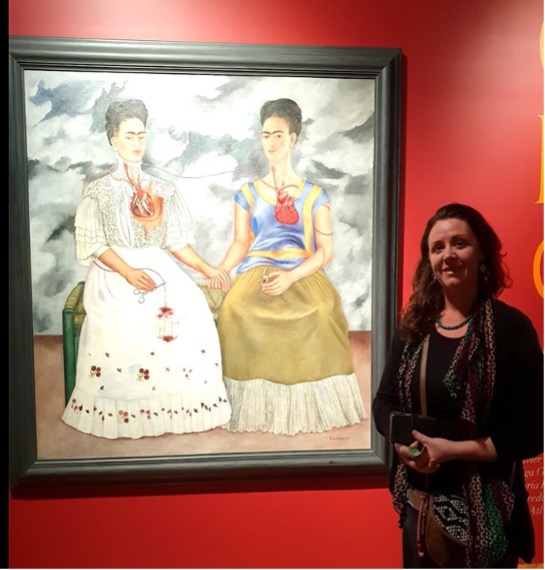This post is part of our Research Initiation Scheme for 2023-2024.
What has your academic journey looked like so far? What did you study during your undergraduate and previous postgraduate experiences?
I undertook my PhD in Spanish as a mature student. For my undergraduate degree I did Languages and Latin American Studies [at the University of Essex]. After university I didn’t go straight on to postgraduate study. I travelled after my degree and I lived abroad for several years, teaching in a number of countries (South Korea, New Zealand). In 2016, when I was made redundant from the language program I was teaching on, I applied for a Master’s in Modern Languages at Queen’s. I then had a year between finishing my master’s and applying for the PhD. I enjoyed the return to studying and university life. So, I put a proposal together, applied for the PhD, and got accepted, which I hadn’t really expected! I just finished my PhD in November [2023] – there were some interruptions to my studies, especially because of the pandemic, so my journey was a bit more protracted.
Would you be able to give a brief explanation of your PhD research?
I will try! My broad area is Mexican Studies; in my thesis, “Frida Kahlo and Astrid Hadad: Performing Woman and Nation in 20th Century Mexico”, I look at artist Frida Kahlo, and cabaret político [political cabaret] performer Astrid Hadad. I examine how they perform, resist and contest the hegemonic constructs of Mexican womanhood. So, I look at Kahlo’s self-portraits against the background of cultural nationalism in post-revolutionary Mexico (the period following the Mexican revolution of 1910-1920). I contextualise her work against the art history and discourse of the period. In relation to Astrid Hadad, I examine her work against the backdrop of NAFTA, the North American Free Trade Agreement, which was signed towards the end of the 20th century. I look at how she uses her cabaret performances as political commentary and how she performs womanhood in that context.
